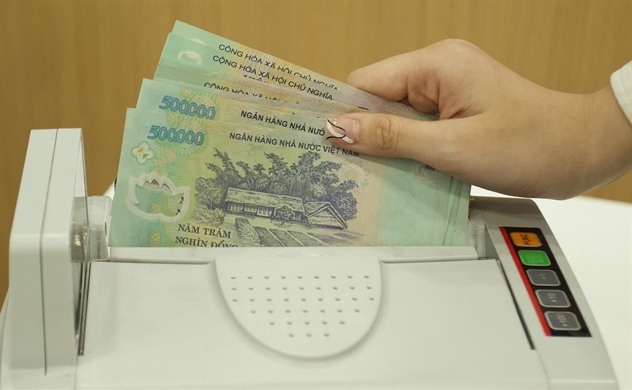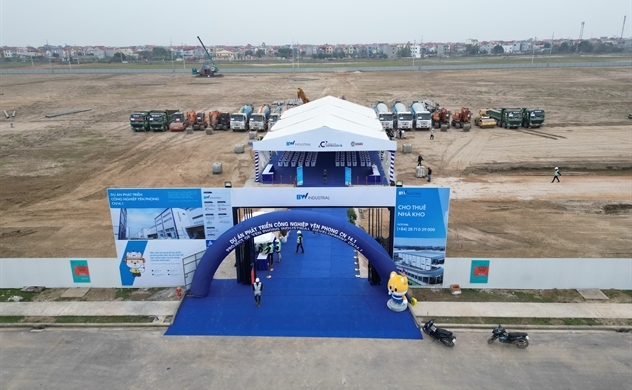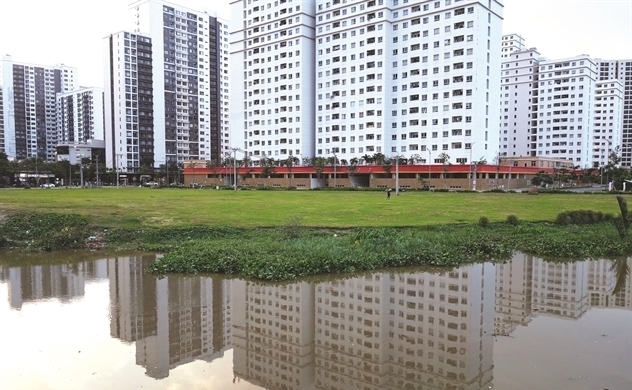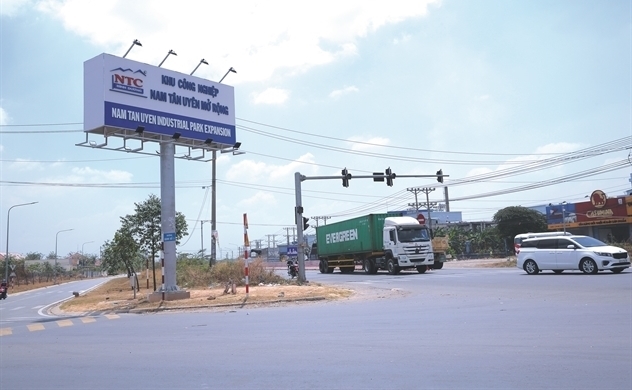Vietnam's real estate companies' funds drop to their five-year low

A decline in cash is an indicator of a liquidity shortage in the real estate market in Vietnam. Photo by Cuong Ngo / Tuoi Tre
In 2022, their cash balances started going down sharply, and in September 2023, they hit their all-time low.
The current report from Vietnam Investors Service and Credit Rating Agency (VIS Rating), a rating agency co-owned by Moody's, says that from January to September of this year, sales and income for Vietnamese companies dropped by 38% and 81%, respectively, compared to the same time last year.
Even though the housing market is bad, there are still some companies, like Vinhomes, An Gia, Nam Long, and Nha Khang Dien, that can show growth in EBITDA (Earnings Before.
This is because they brought in finished homes and other real estate from their big projects last year.
VIS Rating thinks that most developers' ability to pay their debts has gotten worse because they have a lot of debt and not much cash flow.
The amount of cash that developers have saved has dropped to its lowest level in five years.
But because they have to pay around VND114 trillion ($4.70 billion) in loan payments every year in 2023 and 2024, borrowing is risky.
One good thing is that developers can now get money from more places, mostly because banks have restructured their loans and projects.
According to VIS Rating's forecasts, loan growth in the real estate business grew by 22% over the last nine months.
What makes them run out of cash?
VIS Rating told the Tuoi Tre (Youth) newspaper that the 30 biggest real estate companies in Vietnam, excluding Vinhomes, had a total of VND15,824 billion ($652 million) in cash on hand in September of this year.
This includes cash, things that can be used as cash, and short-term assets.
In 2018-22, the number was between VND18 trillion ($743 million) and VND22 trillion ($908 million).
Their overall cash has dropped sharply since 2022. In September, it was at its lowest point.
Duong Duc Hieu, senior head of VIS Rating, told Tuoi Tre that cash flows from operations have gotten a lot worse since 2022 because sellers of new homes aren't getting as much money.
Bank loans are hard to get for companies whose debts are coming due soon.
"Developers face a lot of risks when they try to refinance because cash is going down and they also have to deal with big bond maturities," Hieu said.
He said that most real estate companies don't keep a lot of cash on hand. So, when they have extra money, they put it into projects that will increase the value of their real estate.
The corporate finance expert said that it is still hard to judge how well developers can pay their debts based only on the data given by VIS Rating.
It was made clear by Hieu that in normal business situations, property developers and the whole industry "must maintain a cash reserve equal to their total assets to ensure liquidity."
Since cash is going down, it means there isn't enough liquidity as long as other accounts on the balance sheets, especially debt, stay balanced, he said.
According to Hieu, there were other signs of money problems as well.
Some of these are a low cash flow and a high debt to EBITDA ratio, which means the company owes a lot more than it makes in profits.
Hieu thinks that the fact that many developers are failing to make their interest payments and are under a lot of pressure to make their bond payments shows that they are having money problems.
Reorganizing current debt
Officials at VIS Rating say that it is normal for companies to sell assets to pay off their debt when the economy is bad.
Recently, these kinds of businesses have been busy reorganizing their project portfolios by merging with other businesses or thinking about moving some of the money they've put into one project to other strategic initiatives.
This is shown by a big increase in cash flow for investments in the third quarter of 2023, which made up for a lack of cash for running the business.
VIS Rating pointed out that new numbers show that the total value of real estate M&A deals is continuing to rise.
Recent news stories have talked about internal reform plans backed by bank loans. LPBank with Hung Thinh and MB Bank with Phat Dat are two examples.
Source: Tuoi Tre News

 TIẾNG VIỆT
TIẾNG VIỆT 

















